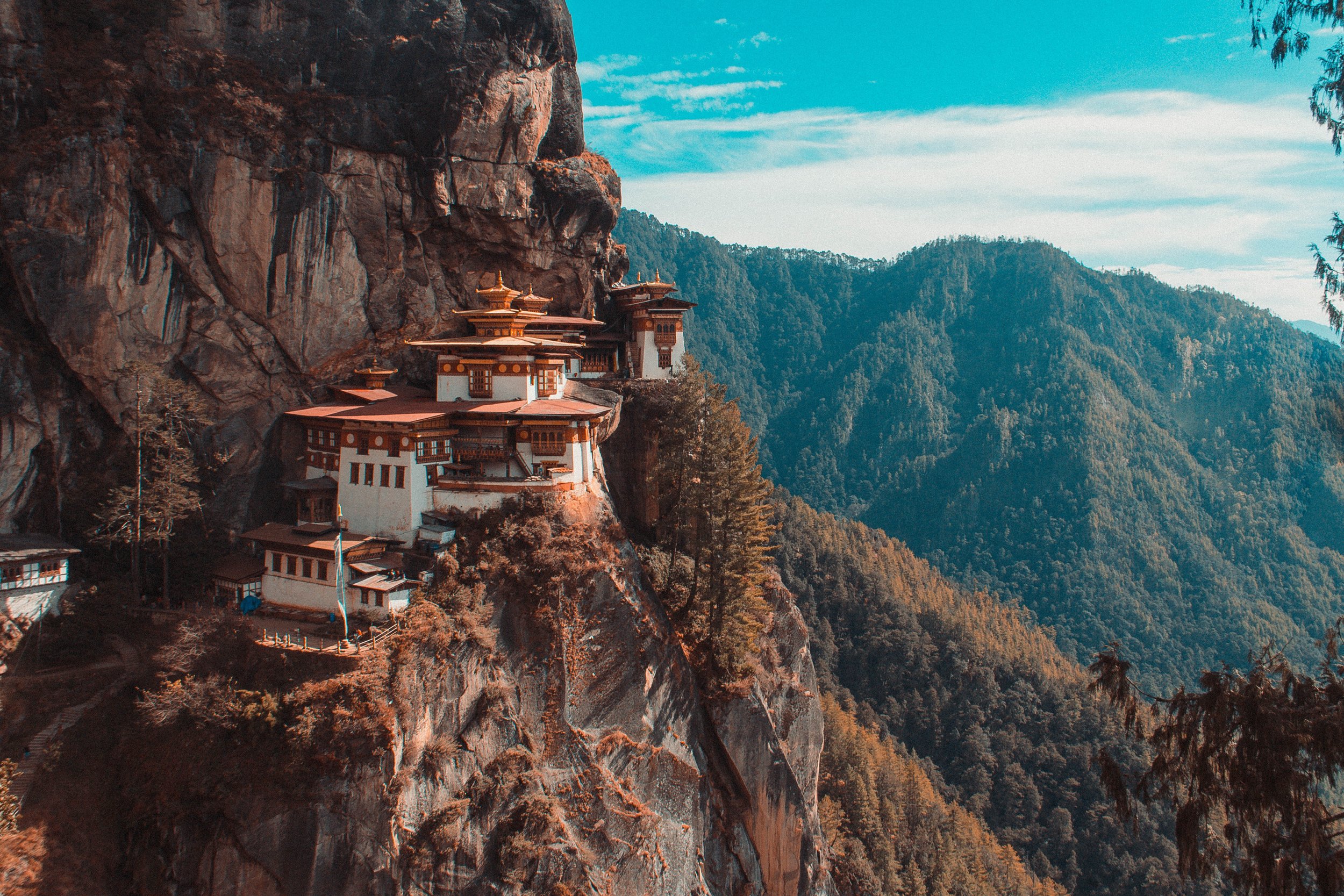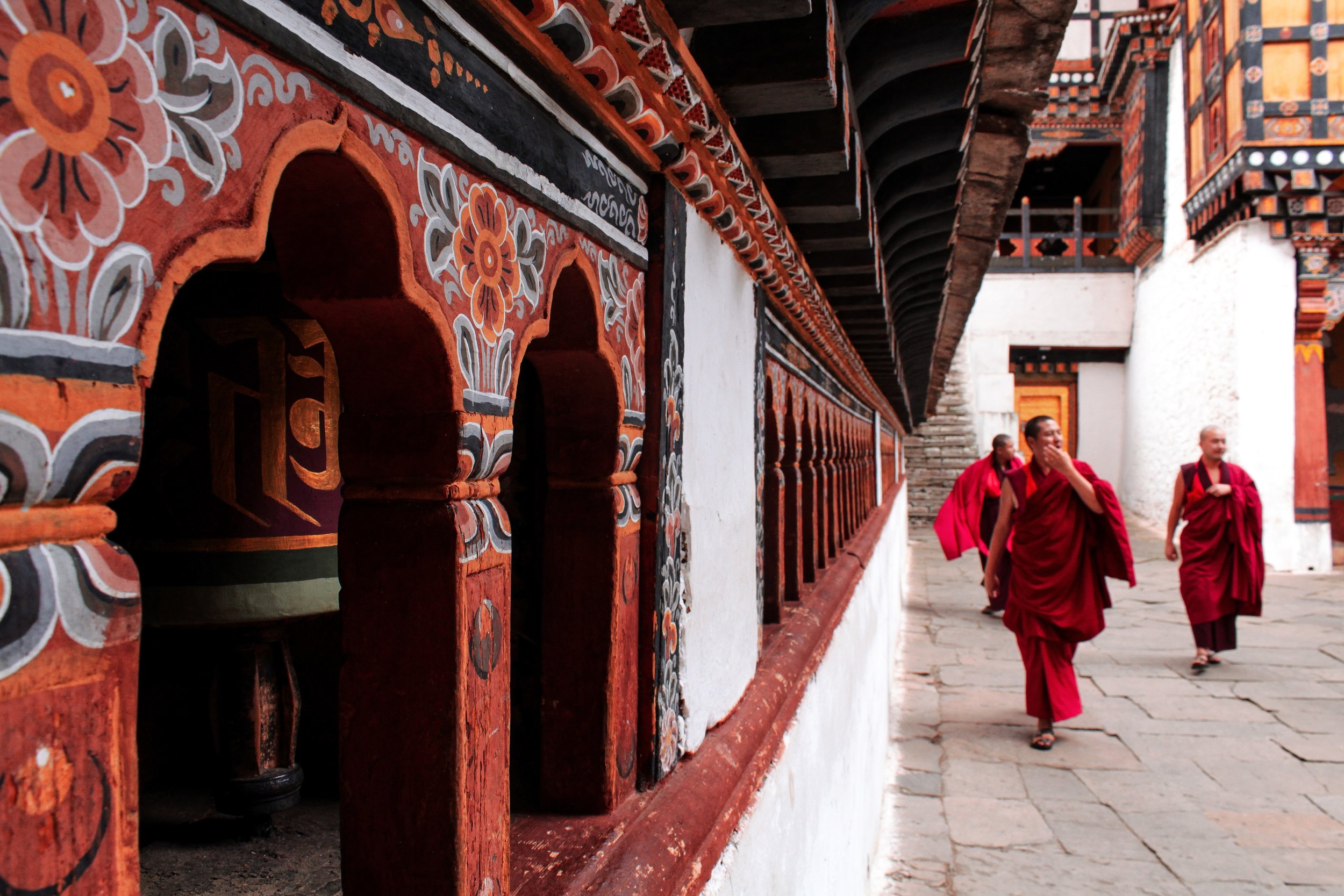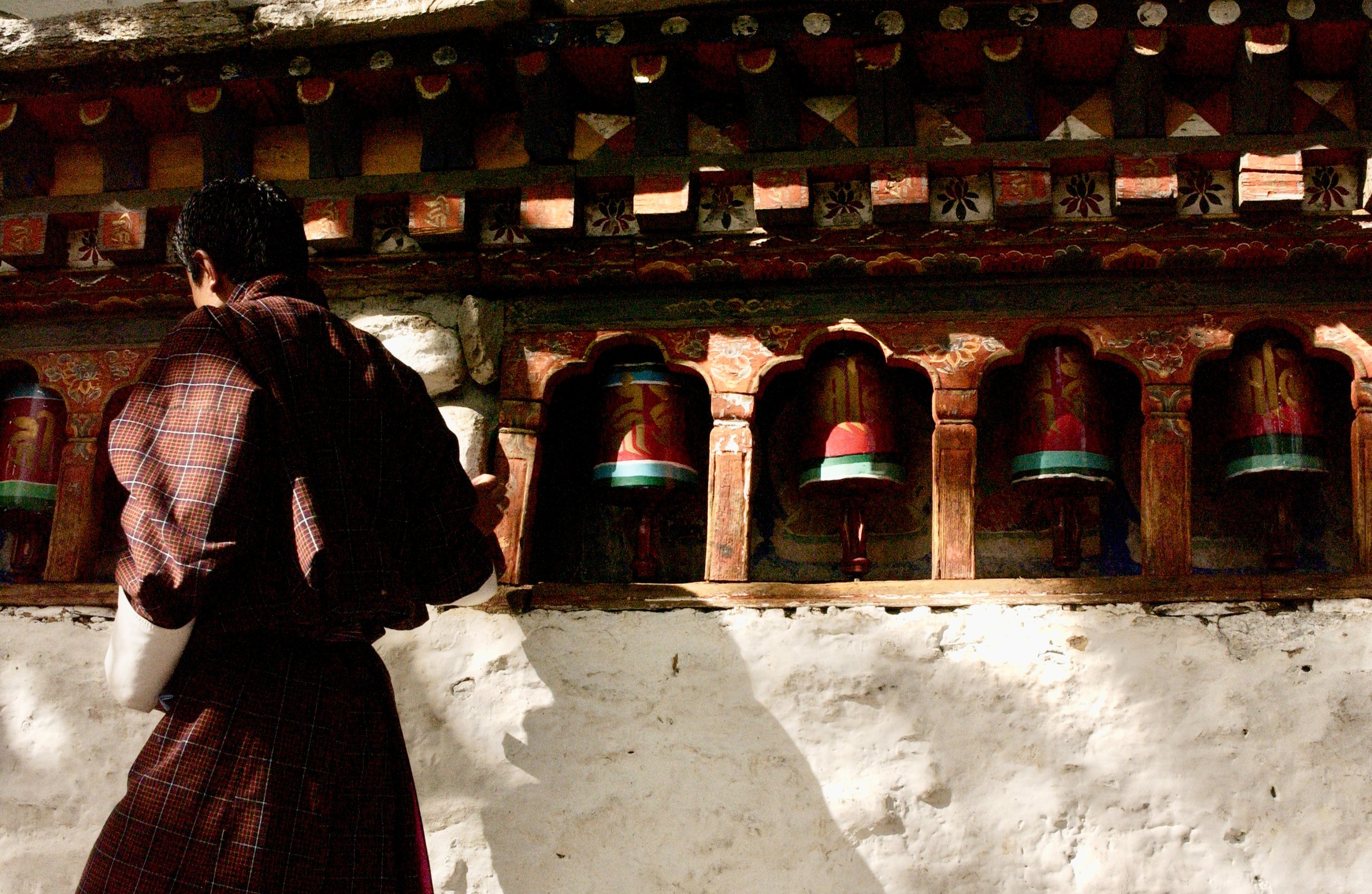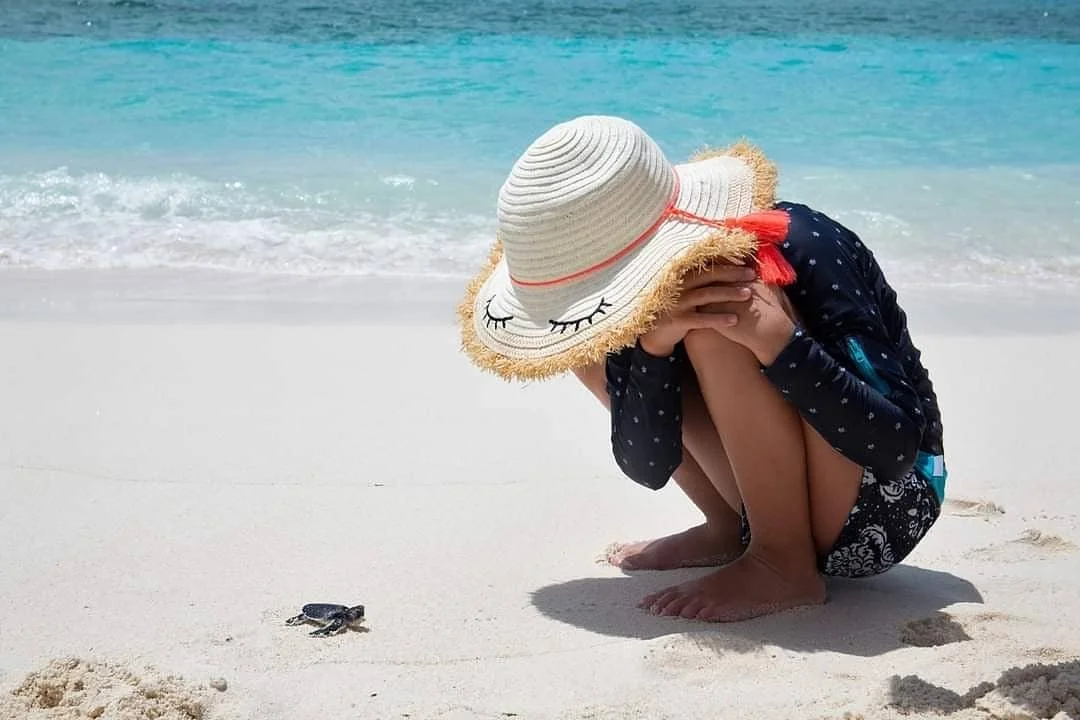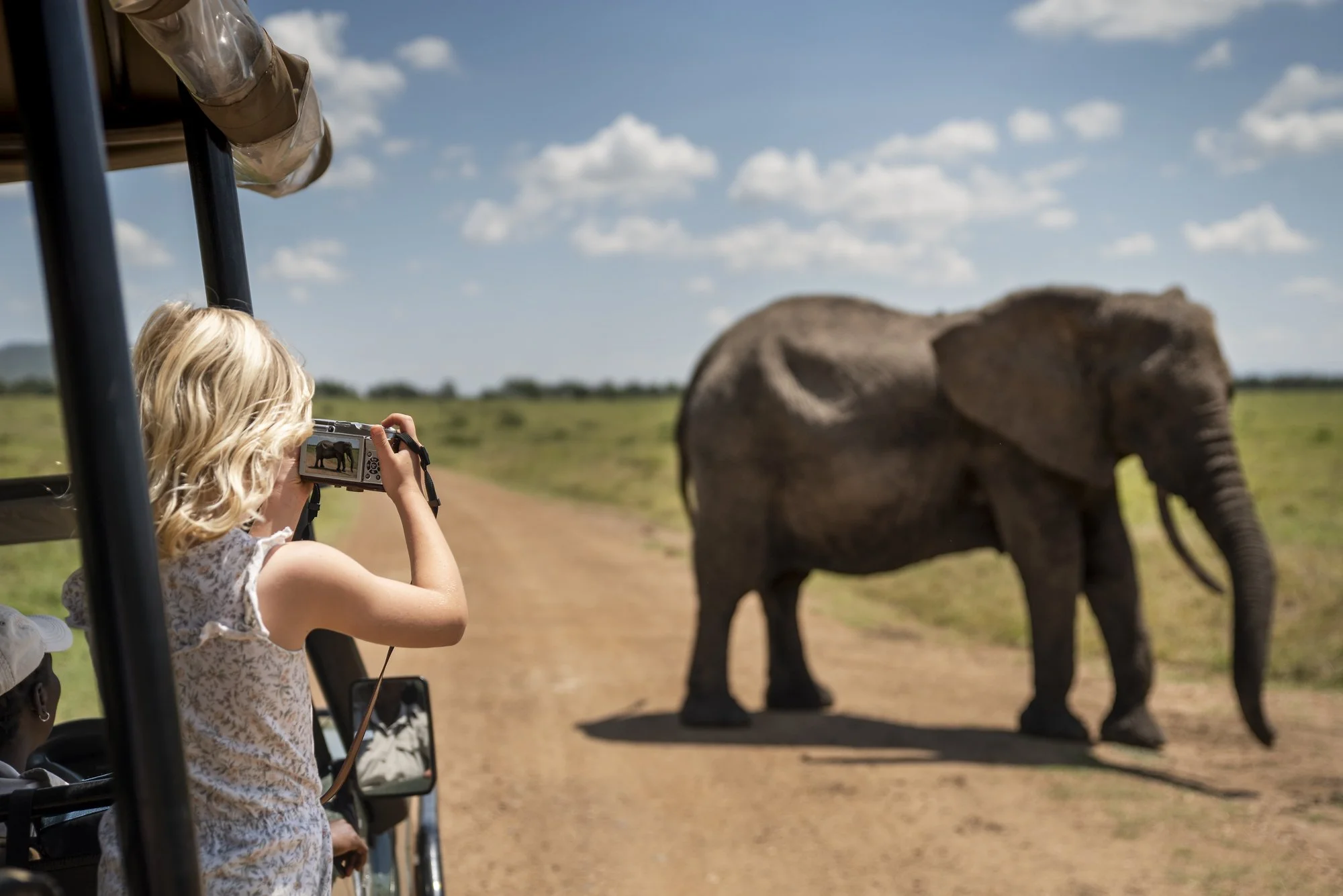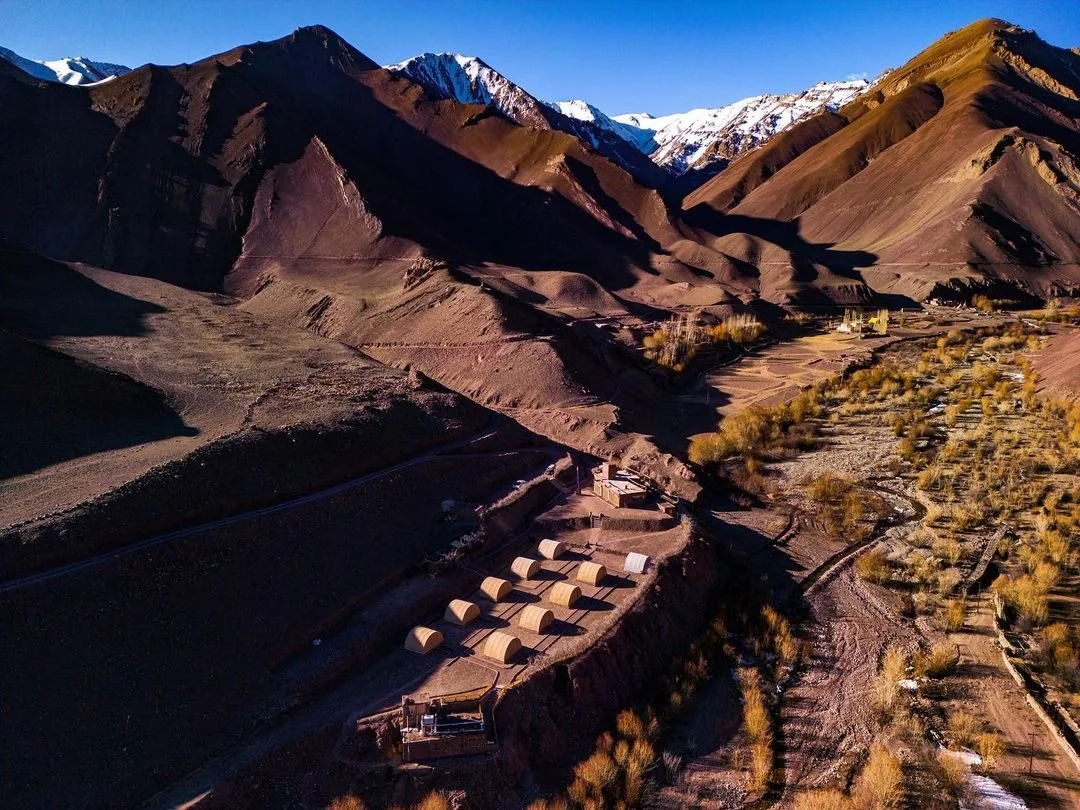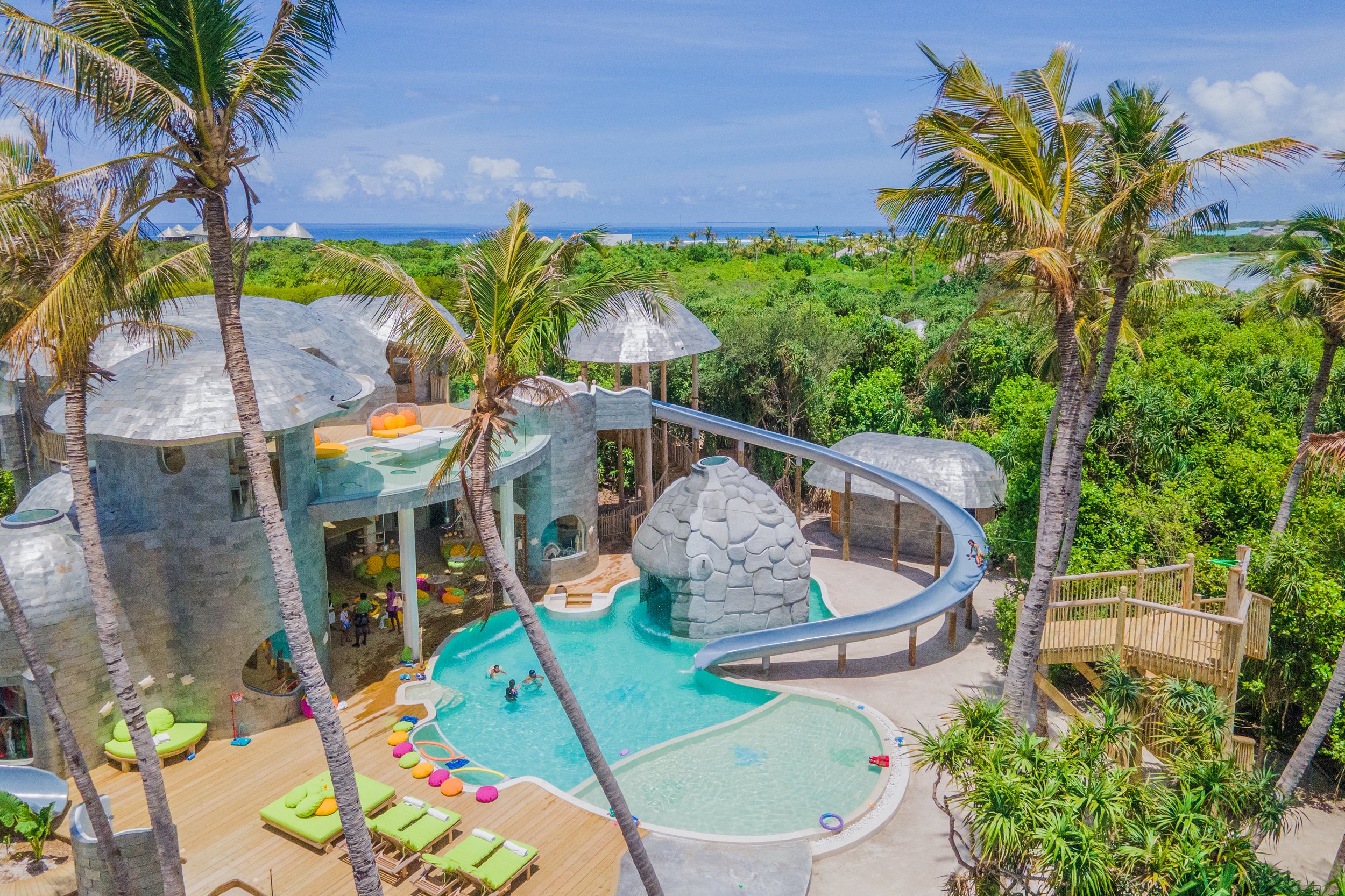— Written primarily based on exclusive insights from Antriksh Tagra, Reservations and Revenue Manager, Six Senses, Bhutan
Imagine a perpetual sojourn into Bhutan, sheerly inspired by a profound yearning for a simpler, happier, and more sustainable way of life that unfurls into a beautiful journey into the Land of the Thunder Dragon. Our quest to discover Bhutan as an emerging destination for those seeking refined, understated luxury unveiled the lesser-known facets of the mystical land. Antriksh leads us on his journey of living in Bhutan, where he actively seeks out the elusive essence of Bhutan, which beautifully embraces a culture steeped in tranquillity and grace. It is a land where environmental conservation is a sacred duty, and Gross National Happiness is not just a catchphrase, it's a way of life.
Let's dive a little deeper into Bhutan with profound insights from Antriksh Tangra, Reservations and Revenue Manager at Six Senses, Bhutan, as he shares details about the culture and sustainability practices and the remarkable fusion of ancient wisdom and modern aspirations that define this captivating kingdom.
Reminiscing his decision to move to Bhutan, Antriksh shares, “Being born and having lived in New Delhi for so long, growing up seeing the population exploding, pollution levels rising, and green areas replaced by concrete jungles, I always dreamt of going back in time when things were more peaceful, greener, less crowded and safer and Bhutan ticked all the boxes. Despite being a neighbouring country to India, Bhutan still stays shrouded in mystery. Despite the Indian valleys of Ladakh and Sikkim sharing cultural similarities, Bhutan's culture, people, experiences and life in the Kingdom existed still relatively unknown, which added a sense of adventure when I started thinking of moving here.”
Living in Bhutan: A Different Perspective
Life in Bhutan unveiled a distinct perspective for Antriksh, diverging from the picturesqueness often associated with the Kingdom. It presented him with the challenges Bhutan grappled with in the post-COVID era following one of the world's lengthiest lockdowns. Much like any other nation, Bhutan faced a number of challenges, however even in these testing times, Bhutan and its Royal family stood united, channelling their community service ethos.
This unity culminated in the Desuups program, derived from the word "De-Suung," signifying "Guardians of Peace” — an innovative initiative that enlisted volunteers from diverse backgrounds and equipped them with skill development programs, empowering them to attain self-sufficiency in their livelihoods. At that moment, Antriksh realized that this embodied the essence of Bhutanese culture — the community facing and overcoming difficulties and obstacles together.
Shared Cultural Values
The cornerstone of Bhutanese culture rests upon Tibetan Buddhism, a guiding light illuminating the lives of most Bhutanese. Its principles revolve around peace, happiness, contentment, and enlightenment, attained through introspection and meditation. These values, although less practised in India amidst the whirlwind of rapid urbanization and capitalism, resonate deeply with Indians on a cultural level. In Bhutan, timeless traditions harmonize with contemporary sensibilities, and community spirit transcends all challenges. Bhutan is not just a destination; it is an immersive journey that leaves an indelible imprint on those who venture into its heart.
Sustainability and Environmental Stewardship
Bhutan stands as a striking testament to sustainable practices. While many nations prioritize economic growth, Bhutan holds steadfastly to the protection of its forests, wildlife, and waterways. The nation's economy remains rooted in industries with minimal environmental impact. Moreover, Bhutan maintains an unwavering commitment to upholding at least 60% forest cover, staunchly limiting the perils of over-tourism, and fiercely enforcing a policy against hunting animals.
Respecting Bhutanese Culture as a Traveller
When embarking on a journey to Bhutan, a nation deeply rooted in its traditions and values, travellers have the unique opportunity to immerse themselves in a culture that is unlike any other. However, this privilege comes with a significant responsibility – to respect and honour the core pillars of Bhutanese society: culture, religion, and monarchy. By doing so, travellers not only adhere to a code of conduct but also open doors to authentic connections with locals, enriching their travel experience in profound ways.
Unmissable Experiences
There’s little fun in experiencing things that everyone has but there’s a unique sense of satisfaction and awe when you come across something that not a lot of people know or have experienced. So we highly recommend venturing beyond the well-trodden paths to unveil some utterly enchanting experiences. When strolling through the mystical roads in Bhutan, you’ll be surrounded by a captivating world of paintings and artwork depicting the life cycle of Gautama Buddha, scattered across the serene landscape amidst the valleys and the mountains. These artistic treasures offer a unique glimpse into Bhutan's deep-rooted spiritual heritage.
Antriksh adds, “For those with an appetite for historical marvels, a visit to Trongsa Dzong and the Tower of Trongsa Museum is an absolute must. Unlike its more famous counterparts in Paro, Thimphu, and Punakha, Trongsa Dzong stands as the longest fortress, boasting breathtaking views of the valley, winding river, and a tranquil dam. What's more, the erstwhile watchtower overlooking the Dzong has been ingeniously transformed into a museum that narrates the tales of the past about Bhutan's monarchy and culture through exquisite artwork and compelling theatre documentaries. This captivating blend of history and artistry offers a truly unique and unmissable experience for any traveller exploring Bhutan.”
Exploring Bhutanese Cuisine
Bhutanese cuisine stands as a mirror reflecting the nation's unique culture. Here, chilli is celebrated as a vegetable, and local dishes like Datsis (curry made of local cheese), meats (Beef, Pork, local trout fish, and Chicken), and rice hold a special place in the hearts of locals. At Six Senses, these cherished local delicacies undergo a modern transformation, resulting in innovative dishes like Ema-Datsi Toasties and Buckwheat pancakes, seamlessly blending international and Bhutanese flavours.
A Glimpse into Six Senses Bhutan
Nestled within Bhutan's stunning landscapes, Six Senses Bhutan harmoniously intertwines well-being and sustainability with the country's Gross National Happiness (GNH) philosophy and the preservation of its rich heritage. The resort comprises five distinct lodges spread across various valleys of Thimphu, Punakha, Gangtey, Bumthang, and Paro to allow guests to experience different parts of the country in their unique charm and natural surroundings.
![Paro_Main_Building_with_Stone_Ruins_[8987-LARGE].jpg](https://images.squarespace-cdn.com/content/v1/57fe1459414fb5e705a88910/1694351085253-EDDZQMQFK9XNG83ZCLI8/Paro_Main_Building_with_Stone_Ruins_%5B8987-LARGE%5D.jpg)
![Thimphu_Courtyard_Dinner_Setup2_[9198-LARGE].jpg](https://images.squarespace-cdn.com/content/v1/57fe1459414fb5e705a88910/1694351093412-FY9RM1K42MR6E40VMI6W/Thimphu_Courtyard_Dinner_Setup2_%5B9198-LARGE%5D.jpg)
![Flying_Farmhouse_and_paddy_fields_with_farmers_[9224-LARGE] (1).jpg](https://images.squarespace-cdn.com/content/v1/57fe1459414fb5e705a88910/1694351078484-8FS26M647K3HZJ8CRI9B/Flying_Farmhouse_and_paddy_fields_with_farmers_%5B9224-LARGE%5D+%281%29.jpg)
![Host_setting_up_terrace_3_[9215-LARGE].jpg](https://images.squarespace-cdn.com/content/v1/57fe1459414fb5e705a88910/1694351078575-0RI8B1AO1TW58OOXONIG/Host_setting_up_terrace_3_%5B9215-LARGE%5D.jpg)
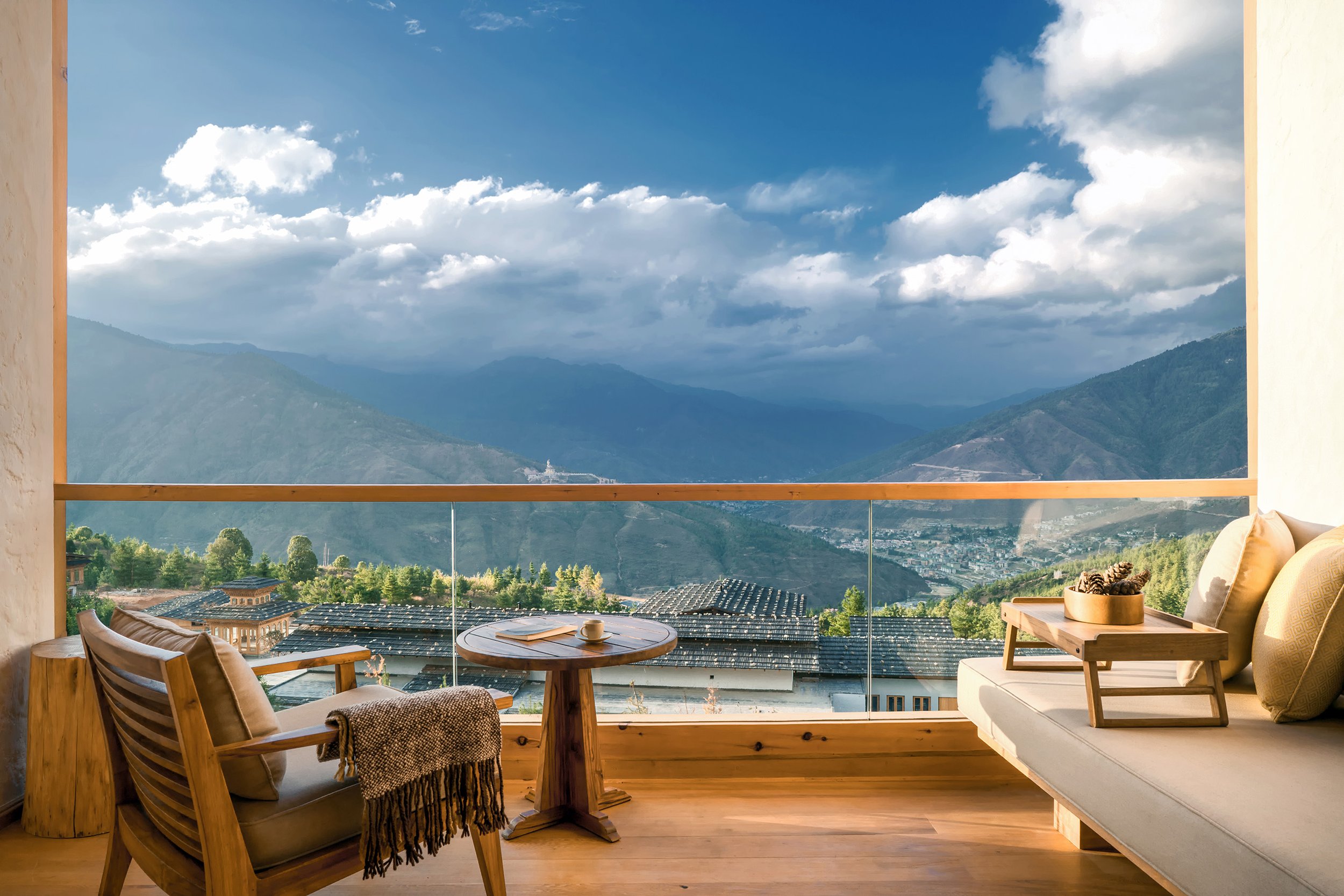
![Punakha_Flying_Farmhouse_Interior_with_Pool_View_[9284-LARGE] (1).jpg](https://images.squarespace-cdn.com/content/v1/57fe1459414fb5e705a88910/1694351088686-S4GE35VQ85ZAC2DCX2L4/Punakha_Flying_Farmhouse_Interior_with_Pool_View_%5B9284-LARGE%5D+%281%29.jpg)
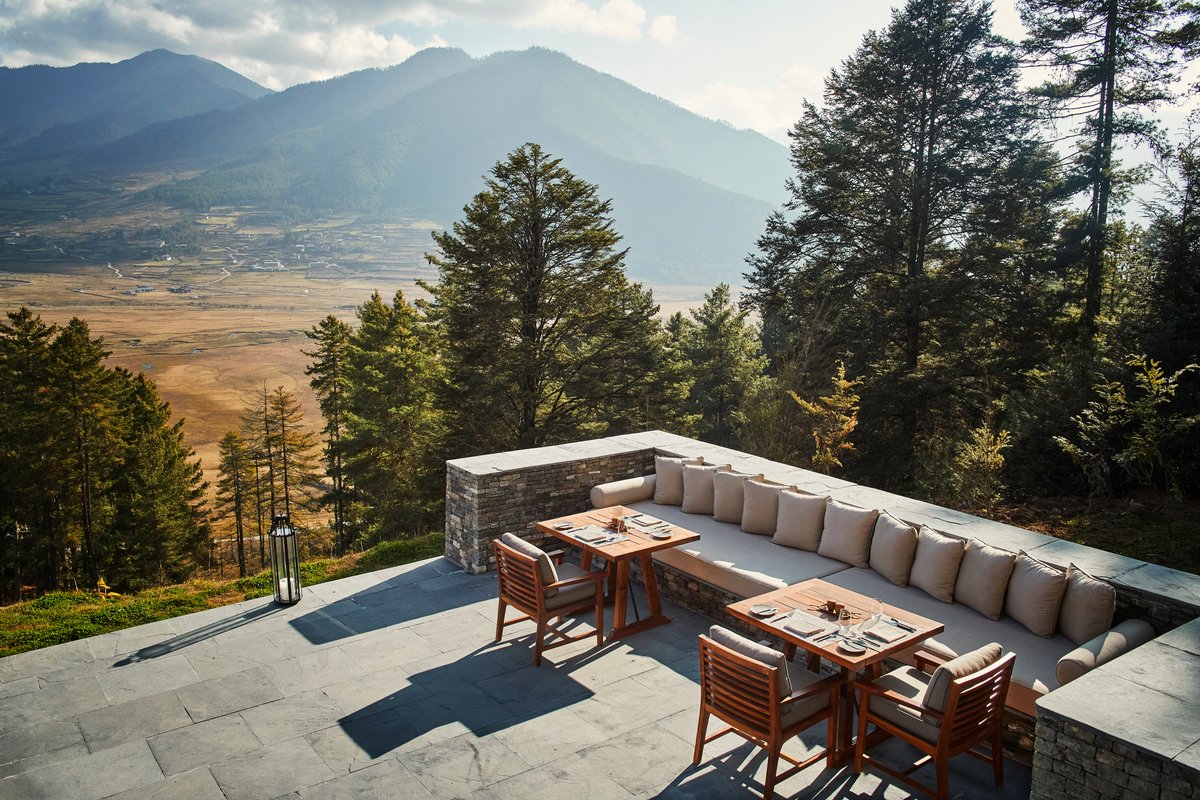
Explaining this in detail, Antriksh shares, “Six Senses Bhutan embodies the spirit of Bhutan. When it comes to Wellness, we at Six Senses integrate traditional Bhutanese practices like Dotsho Bath (Hot Stone Bath), Guided Meditation with a Lama and Buddhist blessing rituals. In terms of Sustainability, we not only use sustainable products wherever possible, but we also gradually make everyone involved in its supply chains follow sustainable practices in their processes and packaging to reduce waste. Moreover, we regularly organize PLIKING exercises where we hike across different locations in all five valleys where teams collect waste. We also support local farmers by buying our ingredients from them as much as possible, helping them with high-quality seeds and donating equipment. Similarly, Six Senses Bhutan has many community projects where we support monasteries, nunneries, businesses and educational institutions.”
Plan a trip to Bhutan and let us be your guiding light. Contact us for a bespoke itinerary and seamless transfers.
Author: Bhavika Vallecha




